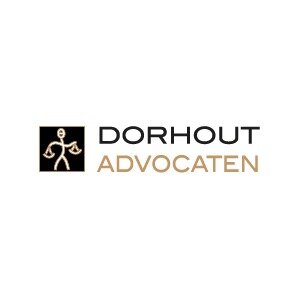Best Housing, Construction & Development Lawyers in Groningen
Share your needs with us, get contacted by law firms.
Free. Takes 2 min.
Free Guide to Hiring a Real Estate Lawyer
List of the best lawyers in Groningen, Netherlands
About Housing, Construction & Development Law in Groningen, Netherlands
Housing, Construction & Development law in Groningen, Netherlands governs the legal framework and regulations related to housing, real estate, construction, and urban development in the region. These laws aim to ensure fair practices, protect the rights of property owners, tenants, buyers, and promote sustainable development in the area.
Why You May Need a Lawyer
There are several situations where seeking legal help in Housing, Construction, & Development may be necessary in Groningen, Netherlands:
- Disputes between tenants and landlords, such as lease agreements, rent issues, or property maintenance concerns.
- Issues arising during property buying or selling transactions, including contract review, negotiations, or title searches.
- Construction-related matters, such as permits, zoning regulations, building codes, or disputes with contractors.
- Land development issues, including urban planning, environmental regulations, land use conflicts, or expropriation cases.
- Contract disputes and litigation related to Housing, Construction, and Development matters.
Local Laws Overview
Key aspects of local laws regarding Housing, Construction & Development in Groningen, Netherlands include:
- Building regulations and permits: All construction projects must comply with specific building codes and regulations. Permits may be required for renovations, new construction, or changes in land use.
- Tenancy laws: The rights and obligations of tenants and landlords are outlined in local laws, covering areas such as lease agreements, rent increases, eviction procedures, and tenant protections.
- Urban planning and development: Regulations govern the use of land, zoning restrictions, urban development projects, environmental impact assessments, and public participation.
- Real estate transactions: Laws cover property ownership, registration, transfer, mortgages, and other legal aspects related to buying, selling, or renting real estate in Groningen.
- Health and safety regulations: Construction and housing projects must adhere to health and safety standards to protect occupants and prevent hazards.
Frequently Asked Questions
1. Can a landlord increase the rent arbitrarily?
No, landlords in Groningen, Netherlands must follow specific regulations for rent increases. The maximum allowable rent increase per year is determined by the government and depends on factors such as the property's condition and local rental market.
2. What can I do if my landlord refuses to make necessary repairs?
If your landlord is neglecting repairs that affect your health or safety, you should notify them in writing and give a reasonable deadline to fix the issues. If they still fail to act, you can contact the local authorities or seek legal advice to protect your rights as a tenant.
3. Are there any restrictions on renovating my property?
Yes, certain renovations or alterations to your property may require permits depending on their scope and impact. It is recommended to consult the local municipality or a legal professional to ensure compliance with the regulations.
4. What is the process for purchasing property in Groningen, Netherlands?
The process involves various stages, such as finding a property, negotiating the price and terms, conducting due diligence, signing a purchase agreement, and completing the transfer at the notary's office. It is strongly advised to engage a real estate lawyer who can guide you through the process and protect your interests.
5. Can I legally challenge a decision made by the local planning authority?
Yes, if you disagree with a decision made by the local planning authority, you have the right to challenge it through an objection or appeal process. Seeking legal advice early in the process can help you understand your options and the likelihood of success in challenging the decision.
Additional Resources
For further information and assistance, you may refer to the following resources in Groningen, Netherlands:
- The Municipality of Groningen - Housing Department
- Groningen Bar Association
- Groningen Housing Rights Organization
- Groningen Construction Industry Association
Next Steps
If you require legal assistance in Housing, Construction & Development matters in Groningen, Netherlands, consider taking the following steps:
- Gather and organize all relevant documents and information pertaining to your situation.
- Research and shortlist reputable lawyers or law firms specializing in Housing, Construction & Development law.
- Contact the selected lawyers and schedule initial consultations to discuss your case.
- During the consultation, explain your situation clearly and ask about their experience, fees, and potential strategies.
- Compare the consultations and choose a lawyer who best meets your needs and provides a realistic assessment of your case.
- Retain the chosen lawyer by signing a written agreement, clearly outlining the scope of their services, fees, and any other relevant terms.
- Work closely with your lawyer, providing them with all necessary information and cooperating in the legal process.
- Attend meetings, hearings, or other legal proceedings as advised by your lawyer.
- Regularly communicate with your lawyer for updates and clarification on any concerns or questions you may have.
- Follow the legal advice provided by your lawyer and engage in any necessary negotiations or settlements to resolve your case.
Lawzana helps you find the best lawyers and law firms in Groningen through a curated and pre-screened list of qualified legal professionals. Our platform offers rankings and detailed profiles of attorneys and law firms, allowing you to compare based on practice areas, including Housing, Construction & Development, experience, and client feedback.
Each profile includes a description of the firm's areas of practice, client reviews, team members and partners, year of establishment, spoken languages, office locations, contact information, social media presence, and any published articles or resources. Most firms on our platform speak English and are experienced in both local and international legal matters.
Get a quote from top-rated law firms in Groningen, Netherlands — quickly, securely, and without unnecessary hassle.
Disclaimer:
The information provided on this page is for general informational purposes only and does not constitute legal advice. While we strive to ensure the accuracy and relevance of the content, legal information may change over time, and interpretations of the law can vary. You should always consult with a qualified legal professional for advice specific to your situation.
We disclaim all liability for actions taken or not taken based on the content of this page. If you believe any information is incorrect or outdated, please contact us, and we will review and update it where appropriate.











